Nineteen Princeton University faculty members were transferred to emeritus status in recent action by the Board of Trustees. Transfers are effective July 1, 2017.
They are:
- Dilip Abreu, the Edward E. Matthews, Class of 1953, Professor of Finance and professor of economics;
- Anne Case, the Alexander Stewart 1886 Professor of Economics and Public Affairs;
- Esther da Costa Meyer, professor of art and archaeology;
- Benjamin Elman, the Gordon Wu ’58 Professor of Chinese Studies and professor of East Asian studies and history;
- Joan Girgus, professor of psychology and special assistant to the dean of the faculty;
- Jan Gross, the Norman B. Tomlinson ’16 and ’48 Professor in War and Society and professor of history;
- Barry Jacobs, professor of psychology and the Princeton Neuroscience Institute;
- Robert Keohane, professor of public and international affairs;
- Yannis Kevrekidis, the Pomeroy and Betty Perry Smith Professor in Engineering and professor of chemical and biological engineering;
- Daniel Osherson, the Henry R. Luce Professor of Information Technology, Consciousness and Culture and professor of psychology;
- Samuel George Philander, the Knox Taylor Professor of Geosciences;
- Jean-Hervé Prévost, professor of civil and environmental engineering;
- Mark Rose, professor of molecular biology;
- Lawrence Rosen, the William Nelson Cromwell Professor of Anthropology;
- William Russel, the Arthur W. Marks ’19 Professor of Chemical and Biological Engineering;
- George Scherer, the William L. Knapp ’47 Professor of Civil Engineering, professor of civil and environmental engineering and the Princeton Institute for the Science and Technology of Materials;
- Brent Shaw, the Andrew Fleming West Professor in Classics and professor of classics;
- A.J. Stewart Smith, the Class of 1909 Professor of Physics; and
- Edwin Williams, professor of linguistics in the Council of Humanities.

Dilip Abreu
Dilip Abreu is an economic and game theorist. He has made contributions in a number of areas including dynamic games and reputational bargaining and the theoretical underpinnings of inefficient markets.
Abreu earned his Ph.D. in economics from Princeton. He held a position at Harvard University before joining the Princeton faculty in economics in 1990. In 1995, he left to teach at Yale University for two years, returning to Princeton in 1997.
Abreu regularly has taught microeconomics for graduate students, and his undergraduate course on game theory and information economics has been a gateway to graduate school for many students.
He is a fellow of the Econometric Society, a member of the American Academy of Arts and Sciences, and an Economic Theory Fellow of the Society for the Advancement of Economic Theory. He has served as a council member of the Econometric Society and of the Game Theory Society.
Abreu received a B.A. from the University of Mumbai, an M.A. from the University of Delhi and an M.Phil. from the University of Oxford.

Anne Case
Anne Case has been a professor at Princeton since 1991. Her research fields include labor economics, health economics and development studies.
Case was awarded the Kenneth J. Arrow Prize in Health Economics from the International Health Economics Association for her work on the links between economic status and health status in childhood. Most recently, her work with Nobel laureate Angus Deaton, the Dwight D. Eisenhower Professor of International Affairs, Emeritus, on the rising mortality rates of middle-aged U.S. white non-Hispanic men and women, garnered international attention. Their first paper in this work was awarded the Cozzarelli Prize from the Proceedings of the National Academy of Sciences. Case is a fellow of the Econometric Society and, in 2017, was elected to the American Academy of Arts and Sciences.
A gifted teacher and mentor, Case was recognized with the President’s Award for Distinguished Teaching in 2011.
Case earned her bachelor’s degree from the State University of New York-Albany and a Master in Public Affairs from Princeton, followed by a Ph.D. in economics from the University in 1988. After receiving her doctorate, Case joined the economics faculty at Harvard before returning to Princeton in 1991 as a faculty member in the Woodrow Wilson School of Public and International Affairs and the Department of Economics.
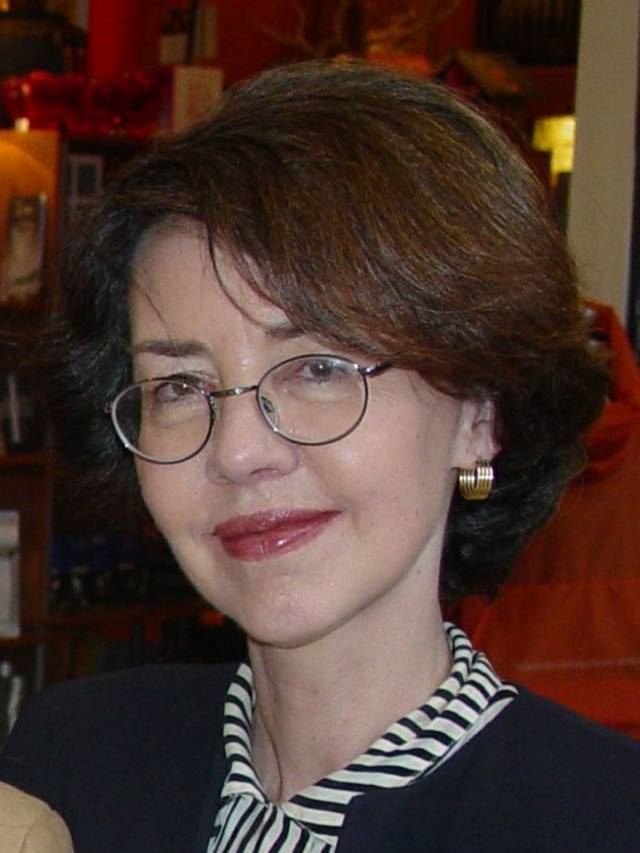
Esther da Costa Meyer
Esther da Costa Meyer teaches modern and contemporary architecture. Her work focuses on architecture in its interaction with globalization, neoliberalism and environmental change. She also works on the architectural practices of colonial powers in the Global South.
Da Costa Meyer came to Princeton in 1998 after teaching at Yale. Her interdisciplinary work is reflected in her diverse courses, including the Global Seminars she has led in India, Brazil, China and Cuba.
She has published on architects Lilly Reich, Charlotte Perriand and Lina Bo Bardi, the Italian futurist Antonio Sant’Elia and French architect and designer Pierre Chareau. She is preparing to publish a book titled “Imperfect Past: Paris, 1850-1870: Urban Renewal and Social Change in Nineteenth-Century Paris.”
Da Costa Meyer’s curatorial work has included the award-winning “Schoenberg, Kandinsky and the Blue Rider,” co-curated with Fred Wasserman at the Jewish Museum in New York, and the exhibition “Frank Gehry: On Line,” at the Princeton University Art Museum.
She received a licenceès lettres from the Université de Genève and a Ph.D. from Yale.

Benjamin Elman
Benjamin Elman is a leading scholar on the intellectual history of China. He has written widely on the examination system, scholarship, ethics, science and technology, and governance in China. His publications include: “From Philosophy to Philology”; “Classicism, Politics, and Kinship; A Cultural History of Civil Examinations in Late Imperial China”; “On Their Own Terms: Science in China, 1550-1900”; and “A Cultural History of Modern Science in Late Imperial China.” In 2011, he received the Mellon Foundation Distinguished Achievement Award.
Elman joined the Princeton faculty in 2002 after teaching at the University of California-Los Angeles. He has served as director of graduate studies and department chair, and as the director of the East Asian studies program. He founded the ongoing academic collaboration of Princeton, Fudan University and the University of Tokyo that is dedicated to broadening the comparative history of East Asia in the early modern world.
Elman earned his B.A. from Hamilton College, master’s degree from American University and Ph.D. from the University of Pennsylvania.

Joan Girgus
Joan Girgus’ research includes work on perception and perceptual development, the transition from childhood to adolescence, the psychosocial bases of depression and sensitivity to interpersonal feedback. She has also written papers on undergraduate science education, women in science and making universities more family-friendly institutions.
Girgus arrived at Princeton in 1977 as professor of psychology and dean of the college. Prior to coming to Princeton, she served as a faculty member and dean at the City College of the City University of New York.
Girgus was the first woman to serve as dean of the college at Princeton and her appointment as professor made her one of only a handful of tenured women faculty members at the University.
In her 10 years as dean of the college, Girgus was instrumental in the creation of the residential college system for students’ freshman and sophomore years. She also helped create the freshman seminar program and the Program in Women’s Studies.
She served as chair of the psychology department for six years, and helped establish the Center for the Study of Brain, Mind and Behavior, a predecessor to the Princeton Neuroscience Institute.
Girgus served for 10 years as the director of the Pew Science Program for Undergraduate Education, a program dedicated to improving science opportunities for students at liberal arts colleges. Girgus is a trustee of Adelphi University, the Wenner-Gren Foundation and McCarter Theatre. She has also served as a trustee of the American Association of Higher Education and Sarah Lawrence College.
She received her bachelor’s degree from Sarah Lawrence College and her Ph.D. from the New School for Social Research.

Jan Gross
Jan Gross studies modern Europe, focusing on comparative politics, totalitarian and authoritarian regimes, Soviet and East European politics, and the Holocaust.
His first book, “Polish Society under German Occupation,” was published in 1979. “Revolution from Abroad,” analyzes how the Soviet regime was imposed in Poland and the Baltic states between 1939 and 1941. “Neighbors,” was a finalist for the National Book Award and reconstructs the events that took place on July 10, 1941, in the Polish town of Jedwabne, where most of the town’s Jewish residents were killed by Catholic Polish neighbors. The book led to a reevaluation of Jewish-Polish relations during World War II and touched off debate in Poland. His “Fear: Anti-Semitism in Poland after Auschwitz” was published in 2006, followed by “Golden Harvest: Events at the Periphery of the Holocaust” in 2012.
After attending Warsaw University, Gross immigrated to the United States in 1969 and earned a Ph.D. from Yale. He joined the Princeton history department in 2003 after teaching at Yale, Emory University and New York University. A recipient of Guggenheim, Fulbright, Hoover Institution and Rockefeller Foundation fellowships, in 2014 Gross also received Princeton’s Howard T. Behrman Award for Distinguished Achievement in the Humanities.
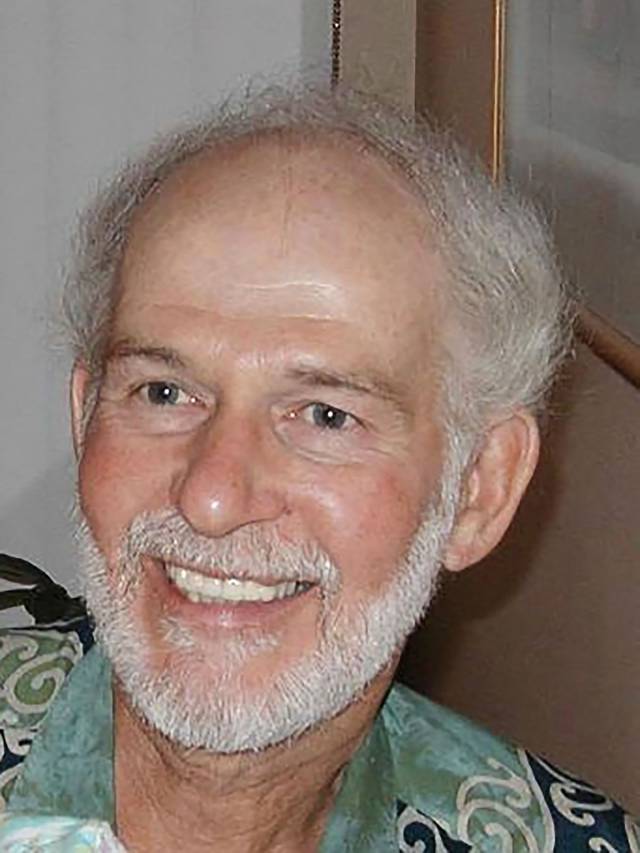
Barry Jacobs
Barry Jacobs’ research spans the brain mechanisms of sleep, the brain chemical serotonin, and the impact of hallucinogens and other psychoactive drugs on the brain. The author of five books and many articles in top scientific journals, Jacobs’ central interest is in brain monoamine neurotransmitters and their role in physiology and behavior, and especially how these brain chemicals relate to stress and mental illness. In addition, he is interested in how basic biological factors, drugs and stress affect the production of new brain cells in adult animals.
Jacobs joined the Princeton faculty in the Department of Psychology in 1972. Among other roles, he was the director of the small neuroscience graduate program from 1988 to 2000.
For many years, Jacobs taught the popular undergraduate course “The Brain: A User’s Guide.” His seminar courses on sleep and depression were also popular among undergraduate students.
Jacobs received his doctorate from the University of California-Los Angeles and served as a postdoctoral fellow in the psychiatry department at Stanford University Medical School.

Robert Keohane
Robert Keohane is one of the leading theorists of neoliberal institutionalism in international relations. He is the author of “After Hegemony: Cooperation and Discord in the World Political Economy” and “Power and Governance in a Partially Globalized World,” and co-author of “Power and Interdependence” and “Designing Social Inquiry.”
Keohane has served as editor of the journal International Organization and as president of the International Studies Association and the American Political Science Association.
Before coming to Princeton in 2005, Keohane held faculty positions at Swarthmore College and at Stanford, Brandeis, Harvard and Duke universities. Along with his scholarship, he is known for his exceptional mentoring of students.
Keohane won the Grawemeyer Award for Ideas Improving World Order in 1989, and the Johan Skytte Prize in Political Science in 2005. He received the Centennial Medal from the Harvard Graduate School of Arts and Sciences in 2012, the Susan Strange Award from the International Studies Association in 2012, and the James Madison Award for lifetime achievement from the American Political Science Association in 2014.
He is a member of the American Academy of Arts and Sciences, the American Philosophical Society, and the National Academy of Sciences, and is a Corresponding Member of the British Academy. In 2009, he was named the most influential scholar of the preceding 20 years in the field of international relations by Foreign Policy Magazine.
Keohane earned received his B.A. from Shimer College and his Ph.D. from Harvard.

Yannis Kevrekidis
Yannis Kevrekidis specializes in mathematical modeling of complex dynamical systems and machine learning, with applications to chemical and biological reaction dynamics and transport. He joined the Princeton faculty in the engineering school in 1986 and became part of the senior faculty in the Program in Applied and Computational Mathematics in 1994. He is also an associated faculty member in the mathematics department.
In 2003, Kevrekidis was awarded the J.D. Crawford Prize of the Society for Industrial and Applied Mathematics for outstanding research in nonlinear science. In 2005, he received a Guggenheim Fellowship and, in 2010, the American Institute of Chemical Engineers awarded him the Richard H. Wilhelm Award in Chemical Reaction Engineering. In 2016, he was awarded the W.T. and Idalia Reid Prize in Mathematics of the Society of Industrial and Applied Mathematics.
At Princeton, Kevrekidis has been honored with four Engineering Council Teaching Awards and the Distinguished Teacher Award from the engineering school.
He received an undergraduate degree from the National Technical University of Athens and a Ph.D. from the University of Minnesota.

Daniel Osherson
Daniel Osherson’s research focuses on how people draw inferences, calculate the probability of specific events, form hypotheses about the environment, and reckon the personal value of alternative situations via neuroscientific and psychological experimentation.
Osherson joined the Princeton faculty in 2003 from Rice University. Previously, he taught at the Massachusetts Institute of Technology and the University of Pennsylvania, as well as at institutions in Italy and Switzerland.
Among Osherson’s publications is the four-volume edited collection “An Invitation to Cognitive Science,” which became a classic reference work in the field. He currently serves on three editorial boards in his field.

Samuel George Philander
Samuel George Philander’s research on oceanic and meteorological changes has led to the publication of over 100 academic papers and three books on topics including El Niño, the Southern Oscillation and global warming. In his teaching, Philander has focused on the intersection between science and society, educating students about earth history and the science of global warming, while helping them understand the importance of cultural perspectives in defining and addressing scientific challenges. In 2011, he led a freshman seminar in his native South Africa.
Philander has served for 27 years on Princeton’s faculty. After completing a postdoctorate at MIT, he joined the Geophysical Fluid Dynamics Laboratory in Princeton and began lecturing in the interdepartmental Geophysical Fluid Dynamics Program (now the Program in Atmospheric and Oceanic Sciences [AOS]). He joined the Princeton geosciences faculty in 1990 and served as director of the AOS program from 1990 to 2006 and as chair of geosciences from 1994 to 2001.
Philander was elected as a fellow of the American Meteorological Society in 1986, the American Geophysical Union in 1991, and the American Academy of Arts and Sciences in 2003. He became a member of the National Academy of Sciences in 2004.
He received his B.S. from the University of Cape Town and his Ph.D. from Harvard.
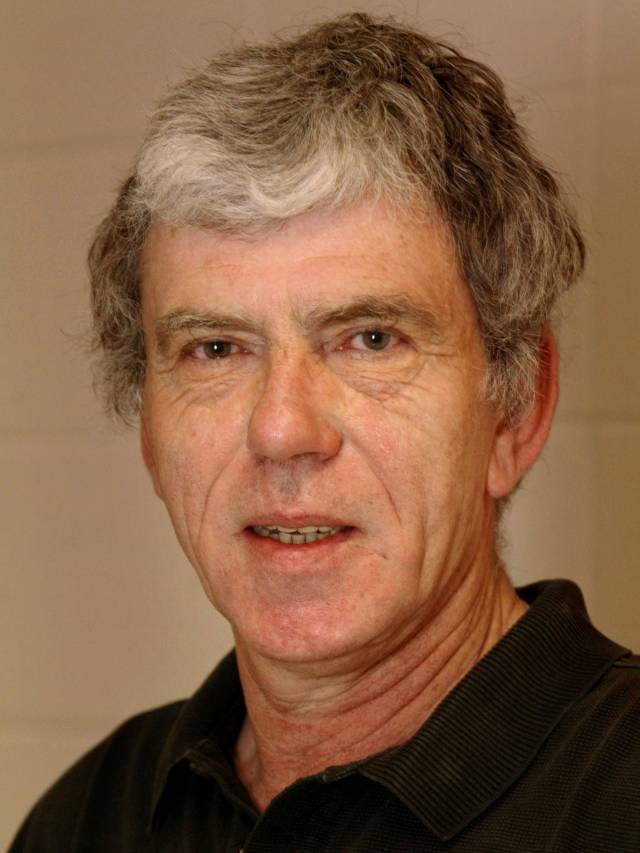
Jean-Hervé Prévost
Jean-Hervé Prévost joined the Princeton faculty in 1980, establishing himself as a leader in the field of theoretical and computational geomechanics. From 1989 to 1994, he was chair of the Department of Civil Engineering and Operations Research, now the Department of Civil and Environmental Engineering.
Beyond publishing widely in his field, some of his major accomplishments include establishing the Centrifuge Soil Laboratory and the Computational Laboratory, and developing the powerful finite element software, Dynaflow, for the static and transient response of linear and nonlinear two- and three-dimensional systems, used in a variety of engineering problems.
He received a degree in civil engineering from École Spéciale des Travaux Publics in Paris and a Ph.D. from Stanford.
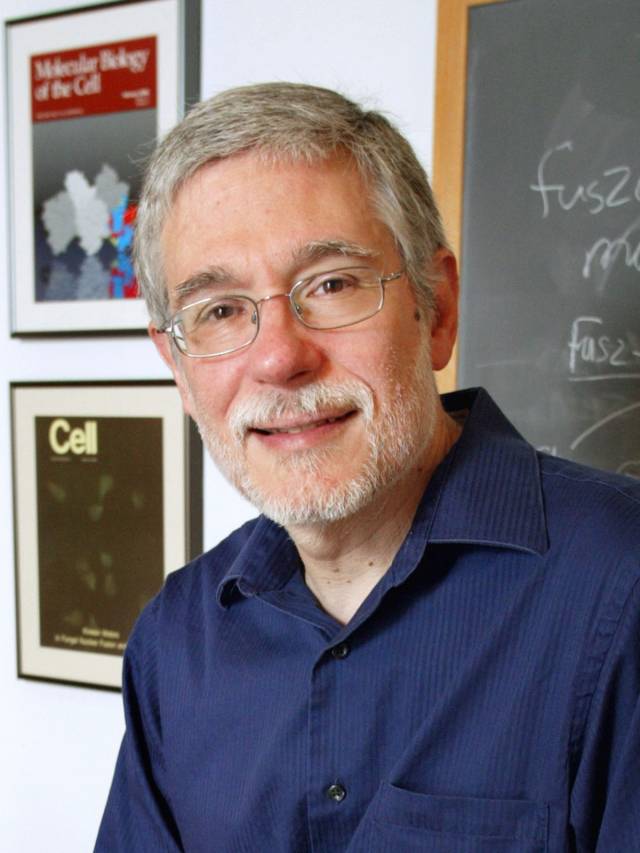
Mark Rose
Mark Rose joined the molecular biology department in 1986. A yeast geneticist, he studies fundamental issues in cell biology.
Rose has served the molecular biology department through numerous roles. He helped strengthen departmental student advising, developed assessment measures for grading, and was instrumental in evaluating teaching performance and updating courses.
Rose also served on several academic committees, building connections with areas such as genomics and the Council for Science and Technology. He was on the advisory board for the McGraw Center for Teaching and Learning as well as the committee on freshman seminars and faculty committee on grading.
He was on the editorial board of Genetics and the American Society for Cell Biology Education Committee. He was also on the Life Science Research Foundation Peer Review Committee. He organized and chaired the 2012 Genetics Society of America/Yeast Genetics Meeting held in Princeton.
Rose received his B.S. from Cornell University and his Ph.D. from MIT.

Lawrence Rosen
Lawrence Rosen studies cultural concepts in society and law. As an anthropologist, he works mostly in the Arab world, writing on Islamic law and the structure of social life; as a lawyer, he works on family law and the rights of indigenous peoples.
Among his many publications, Rosen is the author of “Bargaining for Reality: The Construction of Social Relations in a Muslim Community”; “The Anthropology of Justice: Law as Culture in Muslim Society”; “The Justice of Islam: Comparative Perspectives on Islamic Law and Society”; and “The Culture of Islam: Changing Aspects of Contemporary Muslim Life.”
Rosen joined the Princeton faculty in 1977 and was appointed as an adjunct professor at Columbia Law School in 1979, holding both positions until his retirement. He has received the President’s Distinguished Teaching Award and the Graduate Mentoring Award from Princeton.
Among other honors, he was named a 1981 MacArthur Fellow and received the J.B. Donne Essay Prize of the Royal Anthropological Institute. He has been a visiting professor at Ben Gurion University of the Negev, the University of Pennsylvania Law School and Georgetown University Law Center, and has held a range of fellowships.
Rosen received his B.A. from Brandeis University and his Ph.D. and J.D. from the University of Chicago.
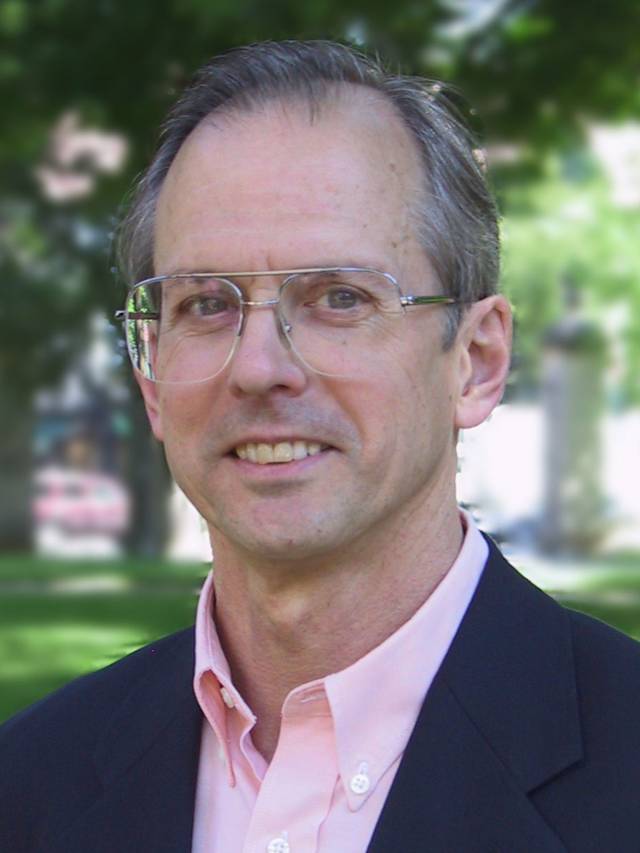
William Russel
William Russel joined Princeton’s faculty in 1974. His service to Princeton has been extensive, including his role as dean of the Graduate School from 2002 to 2014. He was chair of the chemical engineering department — now the Department of Chemical and Biological Engineering — from 1987 to 1996. From 1996 to 1998, he served as director of the Princeton Materials Institute, now the Princeton Institute for the Science and Technology of Materials.
Russel’s research career has focused on the phase behavior, structure and dynamics of colloidal systems. He is the author of "The Dynamics of Colloidal Systems," "Colloidal Dispersions," and "The Phase Behavior and Dynamics of Colloidal Dispersions."
He is a member of the National Academy of Engineering and American Academy of Arts and Sciences, and a fellow of the American Association for the Advancement of Science. He received the 2007 Award for Surface and Colloid Chemistry from the American Chemical Society; the 1999 Bingham Medal from the Society of Rheology; and the 1992 William H. Walker Award for Excellence in Contributions to Chemical Engineering Literature from the American Institute of Chemical Engineers.
Russel earned his B.A. and M.ChE. degrees from Rice University and his Ph.D. from Stanford.

George Scherer
George Scherer is a materials scientist who is known for his seminal works in sol-gel science, cements, conservation of historic structures and glass science. He came to Princeton in 1996, with joint appointments in the Princeton Materials Institute and the Department of Civil and Environmental Engineering. He has published widely on his research, including two books, "Relaxation in Glass and Composites," and "Sol-Gel Science: The Physics and Chemistry of Sol-Gel Processing." An influential teacher, he even mentored students in the “Concrete Canoe” competition.
Previously, he worked in industry — from 1985 through 1995 at the DuPont Company, and from 1974 to 1985 at Corning Glass Works.
Scherer is a fellow of the American Ceramic Society and a member of the Materials Research Society. In 1997, he was elected to the National Academy of Engineering. He has been awarded the Ralph K. Iler Award from the American Chemical Society and multiple S. Brunauer awards from the Cements Division in the American Ceramic Society.
Scherer received his bachelor’s degree and his Ph.D. from MIT.

Brent Shaw
Brent Shaw has been a Princeton faculty member since 2004. An expert on Roman history, he has served three times as director of the Program in the Ancient World.
Shaw’s most recent book is “Bringing in the Sheaves: Economy and Metaphor in the Roman World," published in 2013. His 2011 book, “Sacred Violence: African Christians and Sectarian Hatred in the Age of Augustine,” won a PROSE Award and the Wallace K. Ferguson Prize of the Canadian Historical Association. He also translated and edited “Spartacus and the Slave Wars: A Brief History with Documents.”
In 2015, Shaw received the University’s Howard T. Behrman Award for Distinguished Achievement in the Humanities. Shaw is a life member of the American Philosophical Society.
He received bachelor’s and master’s degrees from the University of Alberta and a Ph.D. from the University of Cambridge.
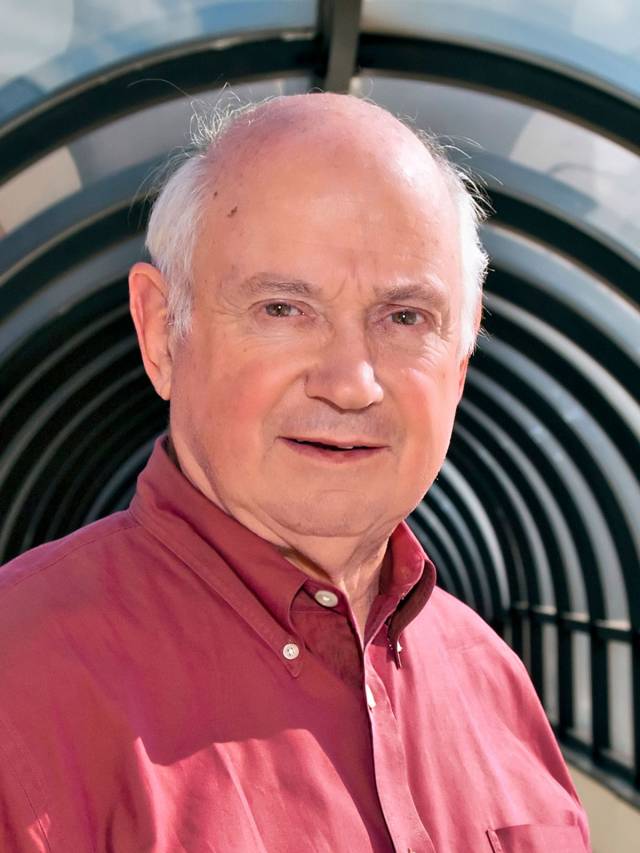
A.J. Stewart Smith
A.J. Stewart Smith is a leading researcher in high-energy particle physics. He earned bachelor’s and master’s degrees from the University of British Columbia and his Ph.D. in physics from Princeton in 1966, subsequently joining the faculty in 1967. Smith chaired the physics department from 1990 to 1998 and served as Princeton’s first dean for research from 2006 to 2013, when he became the University’s first vice president for the Princeton Plasma Physics Laboratory.
During his career, Smith has carried out a succession of major experiments in particle physics at U.S. national laboratories. Since 1995, he has served as scientific team leader of an international collaboration of 600 scientists from 10 countries involved in a project based at the Stanford Linear Accelerator.
A fellow of the American Physical Society, Smith has been a member of the experiments committee for the Large Hadron Collider at CERN (the European Organization for Nuclear Research) in Geneva. He has served on boards for many other organizations, including Brookhaven National Laboratory, the U.S. Department of Energy, the National Academy of Sciences and the National Research Council of Canada. In 2011, Smith was awarded the American Physical Society’s W.K.H. Panofsky Prize in Experimental Particle Physics for his contributions to the field.
Edwin Williams is a syntactician — someone who studies the internal structure of clauses and sentences in world languages — who has an international reputation for scholarship across a range of subjects in the study of language as a science.
Williams received an A.B. at Princeton in 1970 and a Ph.D. from MIT, where his adviser was Noam Chomsky. After a one-year stint in Paris, he took a job as an assistant professor at the University of
Massachusetts-Amherst, where he rose through the ranks, before returning to Princeton in 1990 as part of the University’s commitment to building a program in linguistics.
He has written five books and more than 75 scholarly articles, many of them in the MIT journal Linguistic Inquiry. Williams has held visiting positions at several universities and has mentored generations of students.




